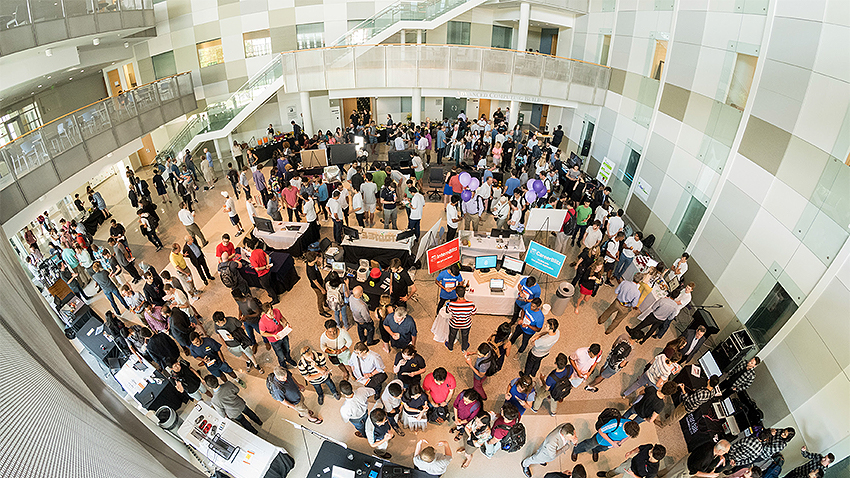Upcoming Events
ML@GT Seminar: Ganesh Sundaramoorthi, United Technologies Research Center (UTRC)

ML@GT invites you to a seminar by Ganesh Sundaramoorth, a principal research scientist from United Technologies Research Center (UTRC).
RSVP Here by Monday, February 10
Talk Title
Solving the Flickering Problem in Modern Convolutional Neural Networks
Abstract
Deep Learning has revolutionized the AI field. Despite this, there is much progress needed to deploy deep learning in safety critical applications (such as autonomous aircraft). This is because current deep learning systems are not robust to real-world nuisances (e.g., viewpoint, illumination, partial occlusion). In this talk, we take a step in constructing robust deep learning systems by addressing the problem that state-of-the-art Convolution Neural Networks (CNN) classifiers and detectors are vulnerable to small perturbations, including shifts of the image or camera. While various forms of specially engineered “adversarial perturbations” that fool deep learning systems have been well documented, modern CNNs can surprisingly change classification up to 30% probability even for simple 1-pixel shifts of the image. This lack of translational stability seems to be partially the cause of “flickering” in state-of-the-art object detectors applied to video. In this talk, we introduce this phenomena, propose a solution, prove it analytically, validate it empirically, and explain why existing CNNs exhibit this phenomena.
Bio
Ganesh Sundaramoorthi is currently Principal Research Scientist at United Technologies Research Center in East Hartford, CT, USA, conducting research in computer vision and machine learning, and building products in robotic inspection from this research. Prior to this, he was Assistant Professor of Electrical Engineering and jointly Assistant Professor of Applied Mathematics and Computational Science at KAUST starting in 2011. He directed the Computational Vision Lab at KAUST, which developed novel mathematics and algorithms, as well as software for video and image understanding technology. His fundamental optimization algorithms have led to advancements in motion-based video segmentation and detection. His group also developed technology for seismic image analysis, electron microscopy images, and medical (MRI & CT) images.
Prior to KAUST, he was a postdoctoral research associate with Prof. Stefano Soatto in the Vision Lab at the University of California, Los Angeles from 2008 to 2010. There he made fundamental contributions to the view invariance problem in object recognition (with Prof. Peter Petersen and Prof. V. S. Varadarajan), and developed technology for video tracking. His PhD is in Electrical and Computer Engineering from the Georgia Institute of Technology in Atlanta, GA, USA in 2008. His PhD developed fundamental shape optimization methods for computer vision that aided in technology for video tracking, and medical image analysis. He was advised by Prof. Anthony Yezzi. His Bachelor's degrees were in Computer Engineering and Applied Mathematics, which he earned in 2003, also from Georgia Tech.
He has served as Area Chair for the leading computer vision conferences, including IEEE Conference on Computer Vision and Pattern Recognition (CVPR) and IEEE International Conference on Computer Vision (ICCV).
Event Details
Media Contact
Kyla Hanson
khanson@cc.gatech.edu
EVENTS BY SCHOOL & CENTER
School of Computational Science and Engineering
School of Interactive Computing
School of Cybersecurity and Privacy
Algorithms and Randomness Center (ARC)
Center for 21st Century Universities (C21U)
Center for Deliberate Innovation (CDI)
Center for Experimental Research in Computer Systems (CERCS)
Center for Research into Novel Computing Hierarchies (CRNCH)
Constellations Center for Equity in Computing
Institute for People and Technology (IPAT)
Institute for Robotics and Intelligent Machines (IRIM)